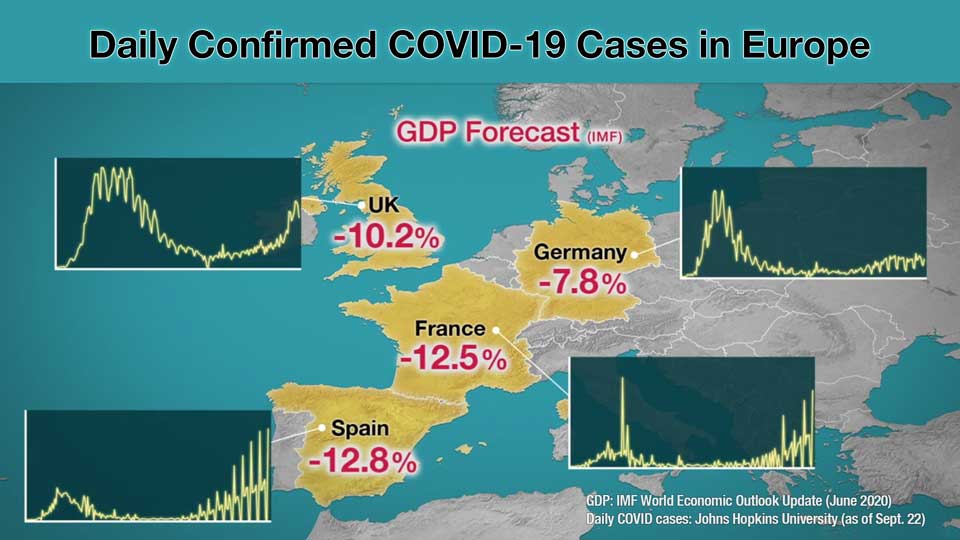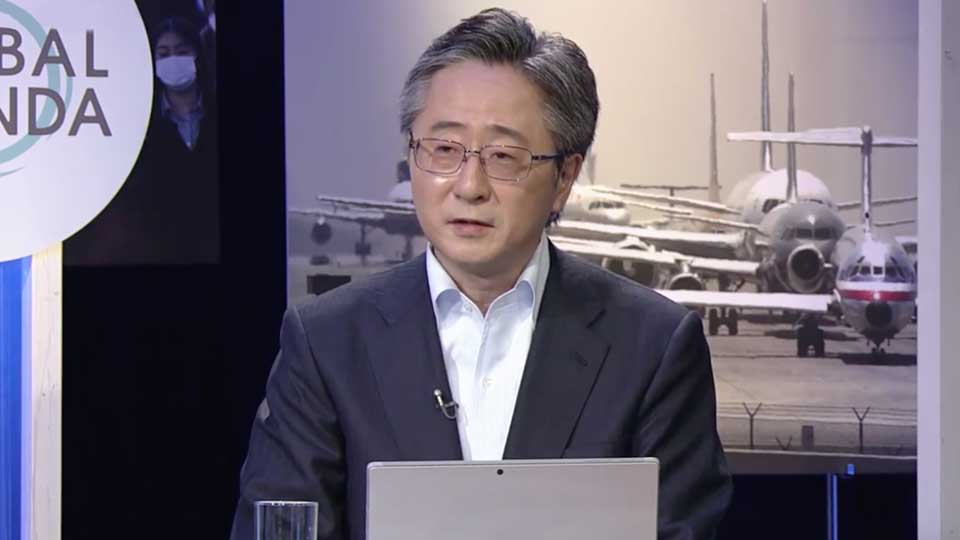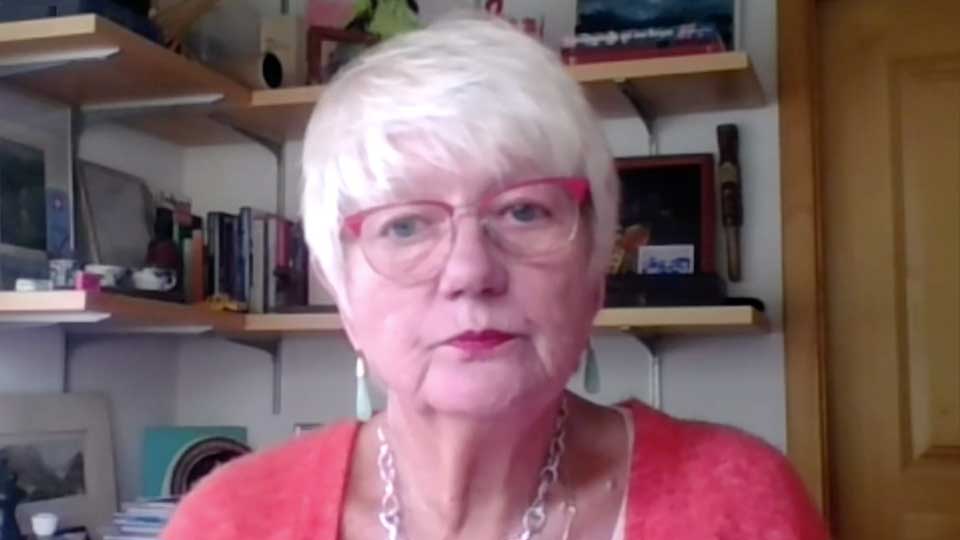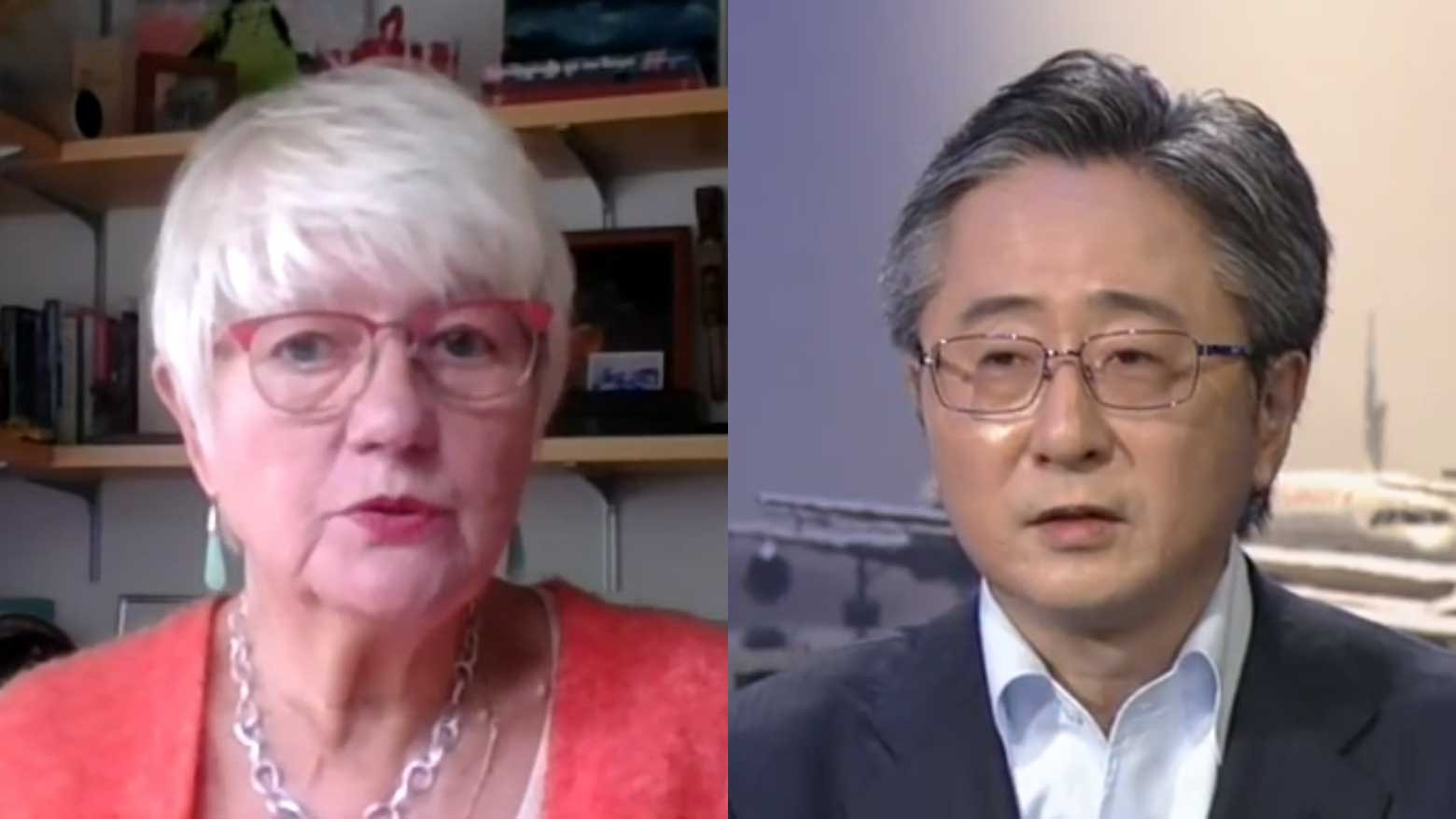NHK WORLD posed this question and others to a roundtable of experts. They include Professor Ilona Kickbusch, a global health expert from Germany and current chair of the Global Health Center at the Graduate Institute Geneva, and Professor Kobayashi Keiichiro, a Japanese macroeconomist at the Tokyo Foundation for Policy Research. (The interview was conducted on September 21. The text has been edited for brevity.)
Bracing for a prolonged battle against COVID-19
EBARA MIKI: Germany seems to have fared relatively better than some European countries in terms of the impact of COVID-19 on both public health and the economy. What do you think was behind this?
ILONA KICKBUSCH: Germany is a very rich country and has been able to give significant economic stimulus and make money available for short-term work agreements, keeping many more people working than has been possible in other countries. Its healthcare system was able to respond to the emergency quickly, resulting in the low death rate. But nervousness remains great because this is a marathon, not a sprint. We will have to live with this virus for at least another year or two, and therefore we need to build a new political consensus on how we do that in a country with sixteen federal states, where decision-making on health is highly decentralised, while the stimulus and other mechanisms happen at the national level.

EBARA: Professor Kobayashi, what have we learned from the outbreak and the government's response thus far?
KOBAYASHI KEIICHIRO: The second wave of infection which hit Japan in July and August originated mainly in the entertainment districts in Tokyo. The numbers of serious cases and deaths were smaller than those from the first wave of April and May. That was because we successfully guarded hospitals and nursing homes in large cities. But we do not know how we will manage in a possible third or fourth wave in the wintertime.
The lesson is that the impact on public health has been relatively small in Japan, but the impact on public debt has been severe. Japan had slipped into recession with a debt of 240% of GDP even before the pandemic; that is more than double the level of the United States. Since the pandemic, the debt has skyrocketed by about a hundred trillion yen. That is a very serious economic problem.
EBARA: You are a member of the new advisory commission of the Japanese government that was set up in July. But the previous advisory group consisted only of scientists. Can the current group advise better?

KOBAYASHI: The most serious problem has been the disagreement between the medical and economic experts concerning the costs of economic shutdown and of PCR testing. Medical experts tend to underestimate the cost of public health measures imposed on the economic system. They would recommend shutting down the economy again and again as infection increases. But that would destroy businesses and the livelihoods of people. So, the role of the economists is to rebalance the assessment of the costs and benefits of the policy actions recommended by the medical experts.
EBARA: You have been advocating for more robust PCR testing. Tell us about that."
KOBAYASHI: Currently, Japan can test around 60,000 people per day, but that is insufficient. It must be four or five times larger -- 200,000 or 300,000 per day. If you have symptoms or have had contact with an infected person, you should be able to get tested quickly and for free. Expanding the capacity may cost a few trillion yen but the economic gain from avoiding another lockdown would save thirty or forty trillion yen.
How to support people's livelihoods and the economy
EBARA: Tell us about how the German government's financial support for industry and citizens came about?

KICKBUSCH: There was a big debate on which part of the economy should be supported and quite a lot of conflict about who should get additional funds, such as certain factories, car makers especially, the restaurant industry, the tourism industry, and then one industry that really takes up a lot of the German mind is football. Right now, that is one of the most controversial discussions. There is also a big discussion on whether financial support should be linked to much stricter conditionalities, for example, the environmental responsibility of the car industry or the airline industry.
As for financial support for individuals, the fact that money was made available for putting people on Kurzarbeit, or short-term contracts, rather than unemployment, has been incredibly important. Also, the whole issue of the basic minimum income where a number of tests are now starting is being pushed forward through COVID-19.
So actually, there is a very productive discussion right now, and next year Germany is going to have elections so we also need to rethink the economic model on which our society is based. What does the social welfare state, the social market economy mean in the 21st century? And if well done, I think that can really boost new economic models that are absolutely critical and are not based on the kind of consumerism on which the present economic model is based.
EBARA: What about in Japan? Based on its COVID-19 experience, should we change anything in our economic structure?
KOBAYASHI: We expect COVID-19 to continue for years to come. So, we need drastic structural changes in the economy, including shrinking the size of many of the service industries like tourism, hotels, and food and beverage services. The government is now supporting the liquidity of firms on the assumption that these businesses can eventually continue as before when COVID-19 is gone. But it should change its policies to restore the solvency of the firms on the premise that they change their business model fundamentally.
Also, the government's policy to support individuals needs improvement. Prompt cash benefits are the most important, and I have been advocating for months for introducing income-contingent loans to individuals. In this scheme, the government should provide loans to individuals in need without any pre-screening ex-ante. Also, we need universal security systems that can quickly support people with different career backgrounds in providing a basic income system as one of the options for the next generation.

Global solutions during a global emergency
EBARA: What will be a key strategy for the international community to tackle this global emergency together?
KOBAYASHI: We must envision a global response to the sovereign debt problem. One idea I have is establishing a world fiscal organisation to coordinate tax policy across the world, so that all countries impose the same tax on the financial markets and on carbon emissions to redeem sovereign debt. If coordination of the national tax policies was not possible in the 20th century, international coordination of fiscal policy may be a key element in the new world order in the 21st century.
KICKBUSCH: First, invest in public health, both nationally and internationally. We need to think globally, and we need to invest significantly in the World Health Organization and in cooperation between countries so that there is better preparedness. We must be better prepared for a response globally.

